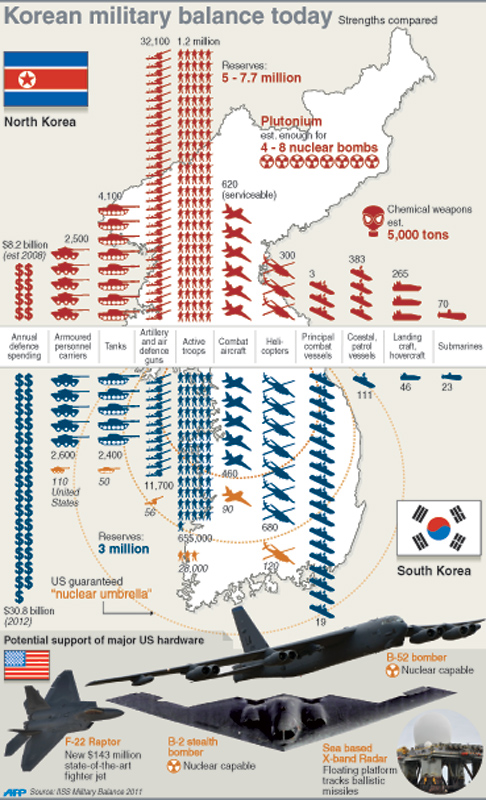Sunday Times 2
No peace for Koreas 60 years after war
View(s):If war tends to draw a nation together, commemorations of it can sometimes do the same. Stooped and frail within the ranks of veterans, Lee Duk-bin watches the memorial parades marking 60 years since the end of the Korean war. He was 25 years old when the conflict began, an officer in the South Korean army, who believed passionately in the ideological fight against the communist North.
After the ceremony, Mr Lee showed me where his unit took the first rounds of North Korean fire – a wide and windy riverbank near the present-day border.
“It was 25 June 1950, at around 4am,” he said. “There was a sudden emergency alert of an attack by North Korea, and as we were rushed here to this location, we could feel the artillery shells landing around us. “As we arrived here on the riverbank, we had to crawl into positions and we could see the North Korean soldiers all clustered together and heavily armed, on the other side. As they spotted us, they started to fire mortar shells, which shook the ground beneath us.”
‘North Korean trickery’
The irony is that Lee Duk-bin is originally North Korean. He came to the South to fight with the UN forces against his own communist government. Sixty years after the fighting ended in a truce, he says it is still too soon for a permanent peace treaty.
“The very idea of a peace treaty is just North Korean trickery,” he said.”It has no intention of making peace with the South. There are still skirmishes and the war isn’t really over. We need to wake up to the fact that nothing’s changed within North Korea and their fundamental goal to spread Communism to the south – by force if necessary – hasn’t changed.”

“I’m 89 years old,” he said. “But if war broke out again tomorrow, I’d fight again, without question.” The Korean War lasted three years, left millions dead, wounded or missing, and drew in more than 20 countries – including the US and China on opposing sides.
The bitter politics of the Cold War made even a temporary truce difficult to negotiate, but despite many infractions over the past six decades, the Korean Armistice Agreement has basically held.
Its most visible legacy was to cement the division of Korea into two nations, separated by a 4km (2.5 miles) buffer zone. But it did not just separate two countries or political systems, it also separated families – parents and children, brothers and sisters.
Mixed allegiances
The stories of separation and resettlement do not come stranger than Kim Kyo-yong’s. For more than 60 years, Mr Kim has lived in the South, with his South Korean wife and army of grandchildren. But Mr Kim arrived here during the war as a young North Korean guerrilla stationed behind enemy lines, and he carried on fighting even after the armistice was announced.
“When I heard about the truce, I felt depressed because we’d been fighting to win, and that’s why we were shedding our blood,” he said.
“We weren’t prepared to surrender just like that. We’d been ordered by headquarters to fight, and that was still our position, to fight to the death.”
Mr Kim and his comrades remained hidden in South Korea’s forested mountains as the armistice agreement was enforced.
“As the person in charge of indoctrination and propaganda, it was a very difficult time for me,” he said. “Morale was low. There was little food or ammunition and once the armistice had been signed, the elite South Korean units started to surround the mountains where we were hiding, and they began taking them, one by one.”
Eventually, Mr Kim was captured and imprisoned in the South for two decades. Now he says he cannot go back to North Korea because of his South Korean family. But he still gets homesick and sometimes looks up satellite pictures of his old North Korean home on the internet.
With such mixed allegiances, even football matches can throw up uncomfortable conflicts. The North Korean team arrived in Seoul this month to play against their Southern counterparts – one place where Mr Kim and his comrades can embrace their old loyalties, though deciding which national anthem to stand for is not always easy.
Unlike the war here, though, football matches at least have a decisive outcome. And this time, North Korea won.
(Courtesy BBC)
Follow @timesonlinelk
comments powered by Disqus

